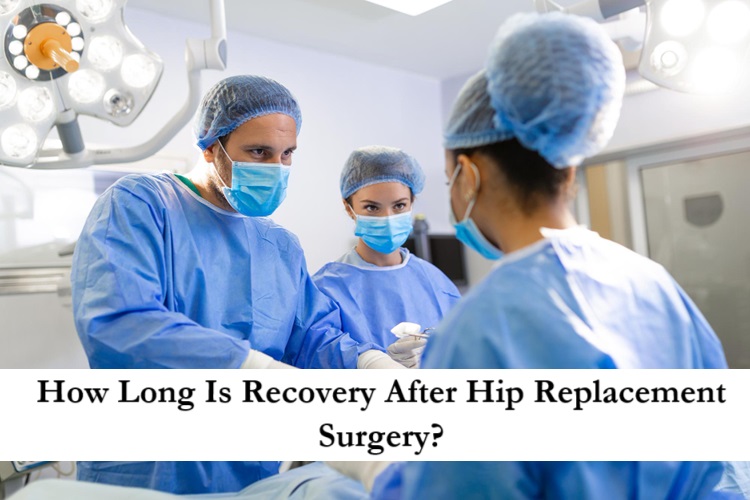The time to recover post Hip Replacement Surgery depends on various factors. This blog provides you a detailed view of the same. Also, learn how you can avoid late recovery by taking care of certain things.
Walking After Surgery
Do you mean when you can walk after surgery? If yes, the answer is after 24 hours. Patients are typically made to walk right after 24 hours of the surgery. Walking sooner helps prevent blood clots and ensures fast recovery.
You might need crutches or a walker initially to walk. However, most young adults don’t need any assistive devices at all. Or, even if you need a walking aid to support yourself during initial walks, you will not need it forever. It is just for a little while.
Going Back to Normal Life (Or Driving) After Surgery
By recovery, you might also mean when you will be able to do everything or resume all activities like driving, going to work, lifting weights etc.
So, in that case, the answer is that recovery time varies a lot from person to person. It depends on several factors like
- Overall Health
- Age
- Type of Hip Replacement Surgery, i.e., partial, total, unilateral or bilateral
- Diet
- Drug Addictions
- Level of Activity before surgery, etc
Still, on average, most patients need at least 2 to 3 months to recover fully and get back to their normal life. If you are healthy and young, you might even start driving approximately one month after the surgery.
Points to Remember for Fast Recovery
Self-care also positively impacts recovery. Patients showing carelessness or negligent behavior often have to face late recovery.
Take care of the following things for a trouble-free & fast recovery.
- Don’t let your incisions get wet until staples are removed ( usually 14 days after surgery).
- Stick to sponge baths to keep infections at bay.
- Talk to your surgeon if incisions seem swollen, tender, red, painful, filled with liquid, and you have a fever too.
- Don’t skip any of your physiotherapy sessions or do all the exercises as instructed by your physiotherapist.
- Ensure an occupational therapist is at your service if you need one.
- Stay away from driving too early. At least wait for one month before driving after surgery or always consult your surgeon first before you decide to drive.
- Stick to a healthy diet. Take sufficient calcium, protein and vitamin D through fresh meals. Avoid junk foods.
- Avoid soft drinks. Always, prefer plain water.
- Take adequate sleep.
- Have medicines on time if any; prescribed by your surgeon.
Is Hip Replacement Surgery Safe?
Yes, it is a safe and successful procedure. Young adults and senior citizens need this surgery alike. And, the procedure ensures the same outcomes for both.
Some people have to suffer from a hip deformity right from their teenage years. The hip deformity causes severe mobility issues in the 20s or early 30s; if left untreated.
So, such people can choose hip replacement surgery to live comfortably without hip pain and mobility restrictions afterwards.
Apart from structural issues, there are several types of arthritis as well that damage the hip joint over time and cause chronic hip pain. Thus, it results in mobility issues. Often old people feel that they won’t be able to walk again.
Hip replacement surgery is also highly successful for such old people. It helps them get rid of chronic hip pain and embrace an active lifestyle.
Thus, it is a successful surgery that has been helping young and old adults live pain-free lives for years. You can improve the quality of your life as well. Click to connect with the top 10 hip replacement surgeons in India.
Can Hip Pain Be Cured Without Surgery?
No. When the hip becomes totally damaged, it results in chronic pain and mobility problems. Thus, the condition cannot be treated with medicines or therapies. An invasive intervention becomes inevitable.
The following are the three major conditions that cause chronic hip pain.
Osteoarthritis: It is the condition of age-related wear and tear. Over time, cartilage in the joint sustains damage and results in stiffness, pain and mobility problems. Cartilage is a soft-tissue cover over a bone end. This condition can occur in any joint, including the hip.
Rheumatoid arthritis: It is an autoimmune disorder. This condition affects the hip by causing the inflammation of the joint lining or membrane, called synovitis. Chronic synovitis leads to cartilage damage, stiffness and finally immobility.
Osteonecrosis: Blood is crucial for nutrient supply to each bone cell. Thus, lack of blood supply leads to bone death, known as osteonecrosis. This condition can also occur in the hip. Often, it leads to the total collapse of the hip ball or femoral head.
Does Hip Replacement Surgery Cause Any Restrictions?
No, hip replacement surgery doesn’t cause any restrictions at all. This surgery is for someone whose life is already limited due to chronic and intense hip pain.
Instead of restricting, this surgery provides pain-free mobility, independence, an active lifestyle and finally better living.
How to Decide If I Might Need This Surgery
Go through the following questions.
- Do you have hip pain that has lasted for long?
- Do you have to take painkillers regularly?
- Do you limp while walking?
- Have you become completely physically disabled due to intense pain?
- Have you tried everything and nothing worked?
It is time you consult the right hip specialist. You might need this surgery to improve the quality of your life.
Conclusion
Enquiring about recovery often entails two questions: when will I be able to walk after hip replacement surgery? And, when will I get back to normal life, being able to do all activities?
The answer to the first question is after 24 hours you will be able to walk. You might need walking assistance during initial walks. The answer to the second question is at least 2 months if not more.
However, hip replacement surgery recovery time isn’t the same for everyone. It varies from person to person due to the interplay of more than one factor.










